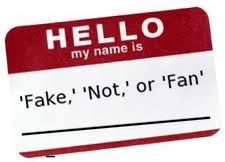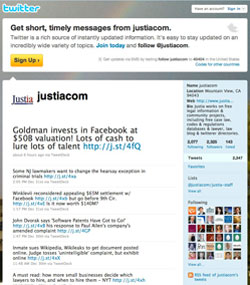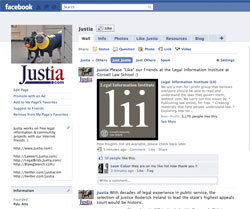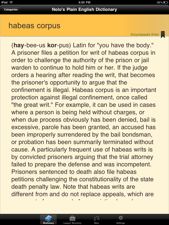 It’s February 1st, and we at Justia are happy to report that in January members of our Onward and Facebook communities not only stopped by to visit us, you also liked us, and sometimes, you really, really liked us.
It’s February 1st, and we at Justia are happy to report that in January members of our Onward and Facebook communities not only stopped by to visit us, you also liked us, and sometimes, you really, really liked us.
Our heavy hitter in January on the Onward Blog in terms of visits was Courtney’s post on the Online Blue Book – looks like there are more than a few people out there who like to get their inner citation geek on. I encourage anyone who hasn’t already to check out Courtney’s analysis and review of The Blue Book’s online features and also catch a glimpse of one of our Justia pugs, Sheba, giving a shout out to vendor-neutral citation. Other popular posts this month included our Legal Predictions for 2011 and some thoughts on our shock over California’s new menu labeling laws (note: watch out for the 400+ calorie scones at Starbucks).




 British authorities arrested Wiikileaks founder and editor-in-chief Julian Assange on Tuesday based upon a
British authorities arrested Wiikileaks founder and editor-in-chief Julian Assange on Tuesday based upon a 



